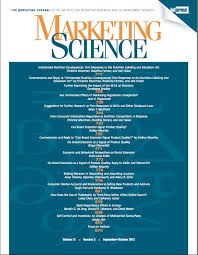
Horvath, C. and Fok, D. (2013). Moderating Factors of Immediate, Gross, and Net Cross-brand Effects of Price Promotions Marketing Science, 32(1):127--152.
-
Affiliated author
-
Publication year2013
-
JournalMarketing Science
This article examines cross-price promotional effects in a dynamic context. Among other things, we investigate whether previously established findings hold when consumer and competitive dynamics are taken into account. Five main influential effects (asymmetric price effect, neighborhood price effect, asymmetric share effect, neighborhood share effect, and private label versus national brand asymmetry) appear jointly in the second layer of a pooled HB-VEC-VARX model, together with brand- and category-specific variables. This study tests the relative importance of these key factors across three scenarios: with no market dynamics, when only consumer dynamics are considered, and when competitive reactions are also taken into account. The results confirm all five influential effects, even if they are jointly estimated, and consumer and competitive dynamics are taken into account. National brand/private label asymmetry has the strongest influence on the cross-price promotional effects and becomes significantly stronger when consumer and competitive dynamics are taken into account. Dynamic consumer responses and competitive reactions both affect cross-brand price elasticities, and contrary to expectations, competitive reactions accumulate rather than diminish cross-price elasticities. Preemptive switching does occur; i.e., a brand's promotion in period t hurts a competitor's sales in subsequent periods. Our findings are based on an extensive data set. To attain generalizable results, we analyze 33 categories in five stores¿that is, 165 store/category combinations.